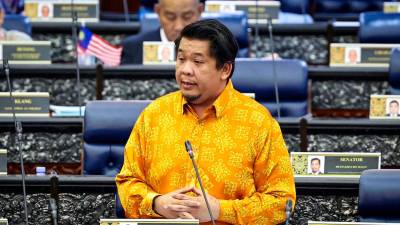KUALA LUMPUR: Malaysia has recorded two COVID-19 deaths as of the 33rd Epidemiological Week this year, compared with 58 deaths reported during the same period last year.
Deputy Health Minister Datuk Lukanisman Awang Sauni stated that as of August 16, a total of 41,814 COVID-19 cases had been reported nationwide, down from 83,018 cases in the same period last year.
“In line with the global trend, COVID-19 cases in Malaysia have risen since April 6, 2025, primarily due to new subvariant changes,” he said during the question-and-answer session in the Dewan Rakyat today.
He confirmed that most infections present with mild symptoms, and current vaccines continue to provide protection against these subvariants.
“The risk posed by the latest COVID-19 variant to high-risk groups remains low and under control,” Lukanisman added.
Malaysia is currently in the living with COVID-19 phase, managing the disease similarly to other respiratory infections such as influenza and other viral illnesses.
Explaining further, Lukanisman said that while fluctuations in case numbers are normal, complications can still arise, particularly among high-risk groups such as the elderly and those with comorbidities.
He added that the Ministry of Health continuously monitors the COVID-19 situation both domestically and internationally, including conducting genomic sequencing to detect new variants or subvariants.
Voluntary and free COVID-19 vaccinations continue at selected health facilities, with the Ministry of Health providing up-to-date information and recommendations based on current risk assessments.
“This includes preventive measures the community can practice, such as vaccination, especially for high-risk groups, maintaining personal hygiene, cough and sneeze etiquette, and wearing a face mask when symptomatic or in crowded places,” he added.
Responding to a supplementary question on the vaccination status of the two deaths recorded this year, Lukanisman said both individuals had not received the latest COVID-19 vaccine.
In his reply to questions on the long-term effects of COVID-19 vaccination, Lukanisman said the Ministry of Health has conducted reviews and taken measures to monitor any alleged effects.
“Indeed, we raised the issue of the COVID-19 vaccine in the Health White Paper presented two years ago, and studies on its long-term effects are still ongoing,” he said.
He added that the vaccine administered during the pandemic helped reduce deaths and provided protection to the population, and that the Ministry of Health has outlined in the Health White Paper a compensation mechanism for verified claims of vaccine-related harm. – Bernama
